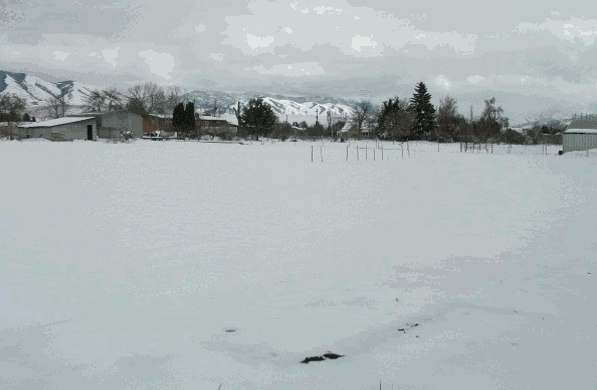
 15
15




I'm only 65! That's not to old to learn to be a permie, right?
 13
13




 6
6




I'm only 65! That's not to old to learn to be a permie, right?
 17
17




I want to be 15 again …so I can ruin my life differently.
 7
7




I'm only 65! That's not to old to learn to be a permie, right?
 9
9





 4
4




I'm only 65! That's not to old to learn to be a permie, right?
 7
7





 11
11




Some places need to be wild
 14
14




Lina
https://catsandcardamom.com
 9
9




Invasive plants are Earth's way of insisting we notice her medicines. Stephen Herrod Buhner
Everyone learns what works by learning what doesn't work. Stephen Herrod Buhner
 5
5




Eric Hanson wrote:Everything John already said. But add to that:
Vice Grips/locking pliers
level
some type of prybar
hatchet/axe
I'm only 65! That's not to old to learn to be a permie, right?
 8
8




Lina Joana wrote:My approach would probably be to start with a work plan, with discrete jobs each trip, and to get the basic tools I need for each job.
I'm only 65! That's not to old to learn to be a permie, right?
 8
8




Anne Miller wrote:Years ago when we bought our homestead the very first thing we did was to put up a fence.
One thing we did need was a swing hoe to cut down grass, it is something like scythe though entirely different. Luckily we already had one.
I'm only 65! That's not to old to learn to be a permie, right?
 11
11




A build too cool to miss:Mike's GreenhouseA great example:Joseph's Garden
All the soil info you'll ever need:
Redhawk's excellent soil-building series





 6
6




Trace Oswald wrote:Don't forget buckets. You will never have too many.
I'm only 65! That's not to old to learn to be a permie, right?
 7
7




"You must be the change you want to see in the world." "First they ignore you, then they laugh at you, then they fight you, then you win." --Mahatma Gandhi
"Preach the Gospel always, and if necessary, use words." --Francis of Assisi.
"Family farms work when the whole family works the farm." -- Adam Klaus
 7
7




Jane Mulberry wrote:
That's a sensible way to approach it, to just buy what I need for each trip there. I may end up needing to buy some tools twice -- the closest hardware store stocks only cheap, low-quality tools -- but to start off till I see which tools are worth investing more in, it may be the way to go.
Lina
https://catsandcardamom.com
 12
12




 5
5




R Scott wrote:Make sure to have plenty of fasteners, nails screws bolts plumbing and electrical parts etc, handy. You will always need them and things usually break when the store is closed.
I'm only 65! That's not to old to learn to be a permie, right?










 8
8




Some places need to be wild
 5
5




I'm only 65! That's not to old to learn to be a permie, right?










 7
7




Some places need to be wild
 5
5




I'm only 65! That's not to old to learn to be a permie, right?
 5
5




 9
9




I'm only 65! That's not to old to learn to be a permie, right?
 3
3




 1
1




 5
5




 7
7




 3
3




 4
4




Jane Mulberry wrote:I am in Europe, so I don't think Milwaukee is easily available here, though Makita is. I have a bow saw but will need to be doing a lot of tree cutting. No big timber, I won't try to tackle anything bigger than 6" diameter, and will probably stick to far smaller branches and trees to start. I love hand tools, but realistically will have to buy a medium sized electric chainsaw, one with batteries that are interchangeable with the drill.
Small-holding, coppice and grassland management on a 16-acre site.
 8
8




 5
5




Jane Mulberry wrote:So far all I have purchased is a few cheap junky tools from the local hardware, but I'd prefer to buy better tools that will last.
Mike
 2
2




I'm only 65! That's not to old to learn to be a permie, right?
 1
1




 3
3




 1
1




Sig Andersen wrote:Buckets: I have a "weed wrench" that is invaluable for removing small trees (up to maybe 2" diameter) and their roots. It sounds like there might be areas with small trees growing in that you'd rather keep open. Getting out the bulk of the roots keeps them from re-sprouting, and this makes the job way easier than anything else I've tried.
I'm only 65! That's not to old to learn to be a permie, right?
 1
1




Shari Samuel wrote:You’ve said that you don’t want chickens but I have found that my best weeding tool has been my hens. Just a thought…
I'm only 65! That's not to old to learn to be a permie, right?
 8
8





|
If you live in a cold climate and on the grid, incandescent light can use less energy than LED. Tiny ad:
permaculture bootcamp - gardening gardeners; grow the food you eat and build your own home
https://permies.com/wiki/bootcamp
|




